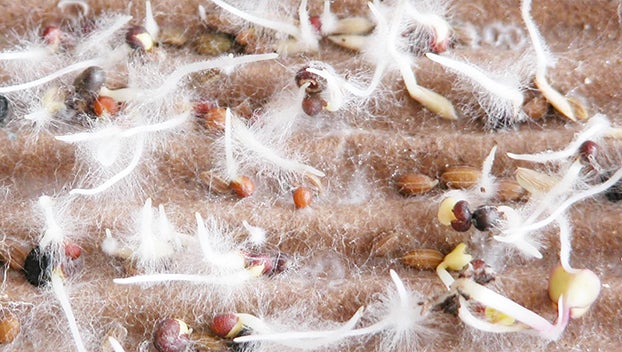Texas native fish and wildlife belong to all Texans
Published 8:38 am Thursday, December 1, 2016
Editorial by Dr. Fred C. Bryant
Texas is known for its vast land and abundant wildlife and fish, resources that are available for all to enjoy through activities such as hunting, fishing or wildlife viewing. Conservation of these resources for future generations is the result of a uniquely North American approach that is viewed as the most successful conservation program in the world
This program is called the North American Model of Wildlife Conservation, and its cornerstone is the Public Trust Doctrine. Simply put, the Public Trust Doctrine means that all wildlife belongs to all citizens, and the management of these wildlife is entrusted to the government for the benefit of present and future generations. The North American Model also is centered on the principle that fish and wildlife management must be based on sound science, and that science should drive regulations rather than emotions or short-term economics.
The North American Model was developed because market hunting of wildlife during the late 1800s and early 1900s led to the extinction and near-extinction of many species. Eventually, hunting and fishing regulations were adopted, and unregulated commercial markets were eliminated, which turned the tide on the indiscriminate slaughter of wild animals. The North American Model deserves credit for bringing many species back from the brink of extinction to the abundant populations we now enjoy.
Today, there is a new threat to the wild creatures we all treasure—privatization of the native fish and wildlife that belong to all of us. This is a bad idea for many reasons. For example, according to the Outdoor Industry Association, hunting, fishing, state park visits, bird watching, canoeing, kayaking and all other non-consumptive uses of our natural resources generate over $28 billion in annual consumer spending in Texas. Why even contemplate disrupting such a huge economic driver? Privatization of native fish and wildlife erodes public support for conservation initiatives, leads to the slippery slope for more and more species to be privatized, degrades the outdoor experience, turns native wildlife into livestock, changes the purpose from conservation to exploitation, and favors short-term economic gain instead of long-term conservation for future generations.
The primary mission of the Texas Foundation for Conservation is to raise awareness about the Public Trust Doctrine, and to resist any efforts to privatize native fish and wildlife for the benefit of a few at the expense of the many. These wild animal resources are like our beaches and our waterways — they belong in the public trust.
We applaud the founders of the North American Model of Wildlife Conservation who saved fish and wildlife in this country. We also believe that Texas offers a unique set of circumstances within which the North American Model of Wildlife Conservation operates. Ninety-five percent of Texas land is in private hands and we believe private landowners are the front-line stewards of our native fish and wildlife resources. For this reason, private property rights are paramount to successful conservation efforts.
As the 85th Texas Legislature convenes in January 2017, please be aware there are industry groups and individuals who seek to privatize the native fish and wildlife that belong to us all. Government should not hand over ownership of a public resource to private entities at the expense of all Texans.
Dr. Fred C. Bryant is the director of the Caesar Kleberg Wildlife Research Institute at Texas A&M University-Kingsville and president of the board of directors of the Texas Foundation for Conservation, a 501(c)3 nonprofit.





